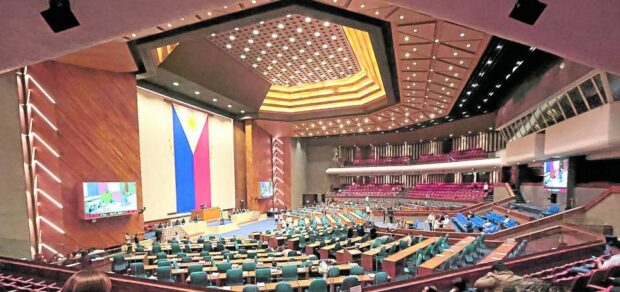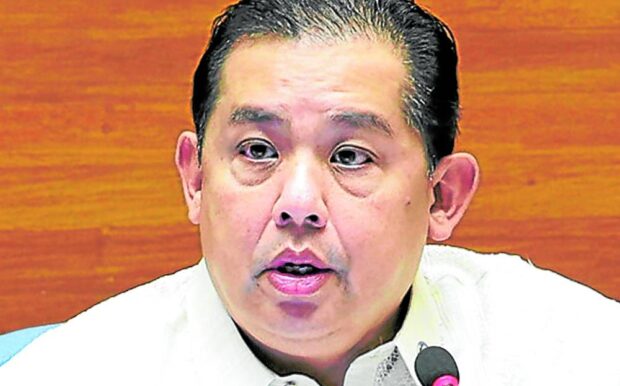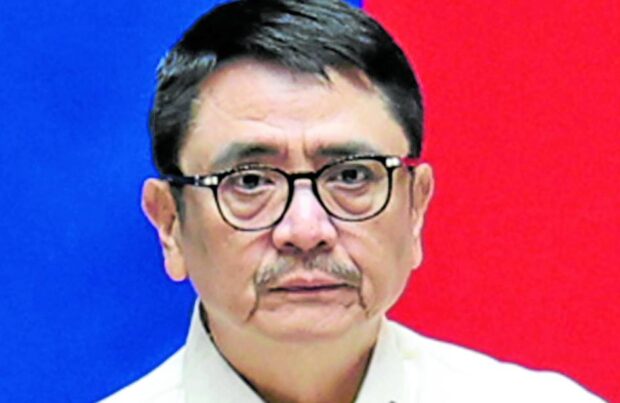House renews push for economic charter change
MANILA, Philippines —— The House of Representatives will push once more to amend the 1987 Constitution’s “prohibitive” economic provisions in 2024 to make it “more attuned, sensitive and responsive.”
On Tuesday, the highest officials of the House stressed that it would be “timely” to revisit and ease the provisions that limit foreign ownership in certain industries as Congress’ “legacy.”
This may include exploring modes of charter change that will not involve the Senate, where previous efforts to amend the Constitution eventually fizzled out.
“I believe 2024 will allow us, again, to revisit the Constitution. I think it’s timely, we’d like to focus on the economic provisions,” said Speaker Martin Romualdez.
In a speech before House reporters, Romualdez said lawmakers would be studying charter change and the procedure to amend the Constitution during Congress’ break from Dec. 16 to Jan. 21.
Article continues after this advertisement“We have to look at the procedural aspects of amending the Constitution. We must tackle that. And to make sure that the economic provisions are backed up, we must have a story of continuity in the government,” Romualdez said.
Article continues after this advertisementHe went on: “What could be our legacy in the 19th Congress is to review and revisit the 1987 Constitution to make it more attuned, sensitive and responsive to the times.”
Term extensions
House senior deputy speaker and Pampanga Rep. Aurelio Gonzales Jr., who filed a House resolution calling for term extensions in the Constitution, said they wanted to finish charter change deliberations before July next year or before the president’s State of the Nation Address (Sona).
“We’ll try to pursue it by next year. By the resumption of our third regular session, we will tackle the amendments to the 1987 Constitution. I think we can hit the target of finishing it before the Sona,” Gonzales told reporters.
He said all modes of charter change were being considered— the people’s initiative, a constitutional convention of elected delegates, or a constituent assembly.
Gonzales noted that the Senate did not act on the House’s proposal to amend the Constitution as stated in Resolution of Both Houses (RBH) 6 and House Bill No. 7325 passed by the lower chamber in March.
“The economic provisions were there, but it didn’t move in the Senate. So we are looking, initially at people’s initiative. We will start by early next year. The question for the people is easy: if you are in favor of the changes to the Charter,” he said.
The 1987 Constitution provides that any amendment may be proposed by Congress through a constituent assembly upon a vote of three-fourths of all its members; a constitutional convention; or a people’s initiative involving 12 percent of the total number of registered voters.
Constituent assembly
Gonzales’ RBH 1 pushed for a constituent assembly to amend the terms of congressmen to two consecutive terms of five years each, from the present three consecutive terms of three years each. He also pushed for the same limit of two consecutive terms of five years each for the President and Vice President.
On Monday, Romualdez renewed his push to ease the economic restrictions in the 1987 Constitution at the Philippine Economic Briefing in Iloilo City.
He said the Charter was the “most prohibitive” in the region and that the Constitution “should be prospective and not reactionary.”
“Right now, it is very prohibitive, the most prohibitive in the region. We would like to lift these restrictions and allow the legislature just to regulate the economy just like other nations do,” he said in Iloilo City.


